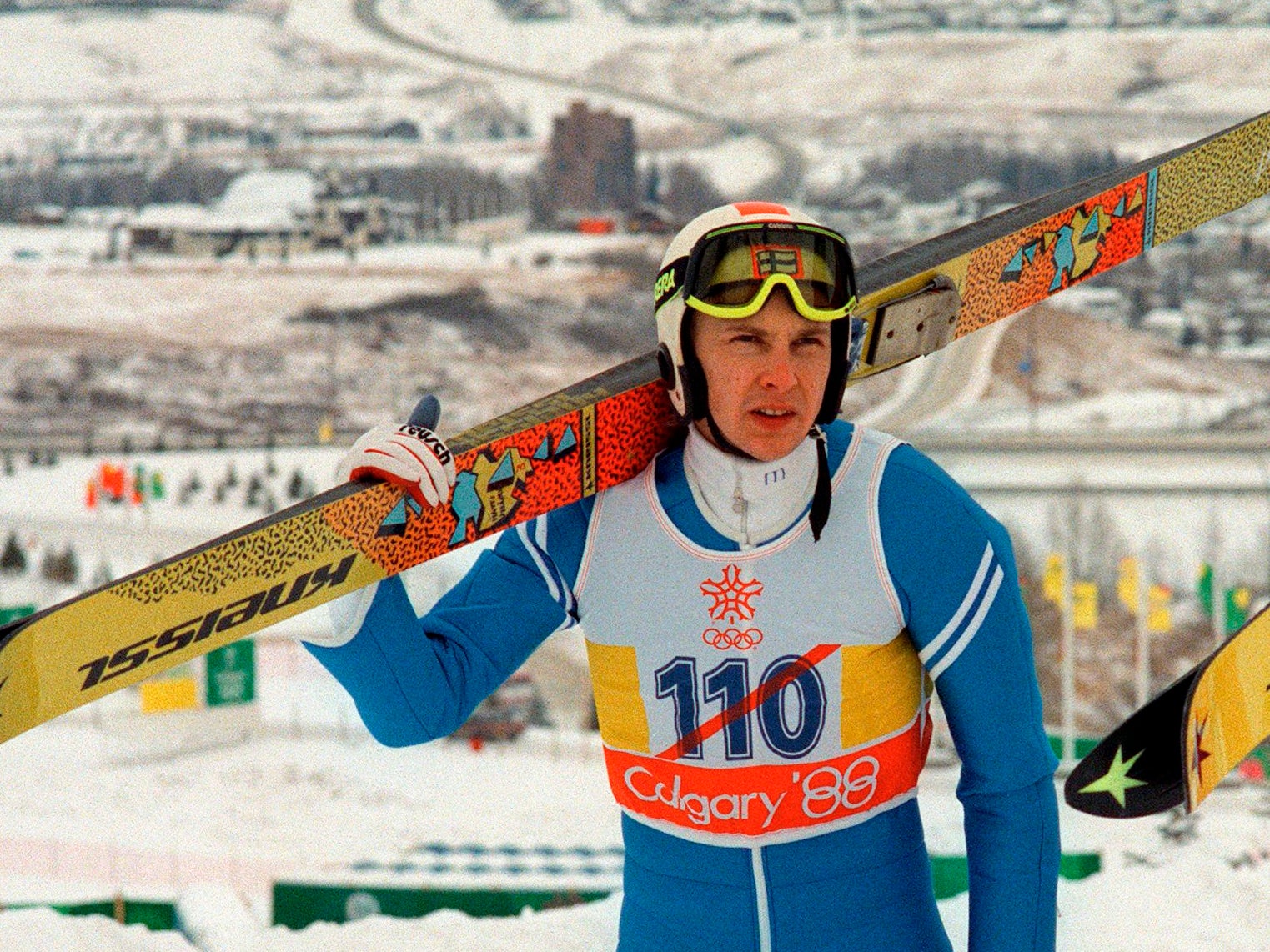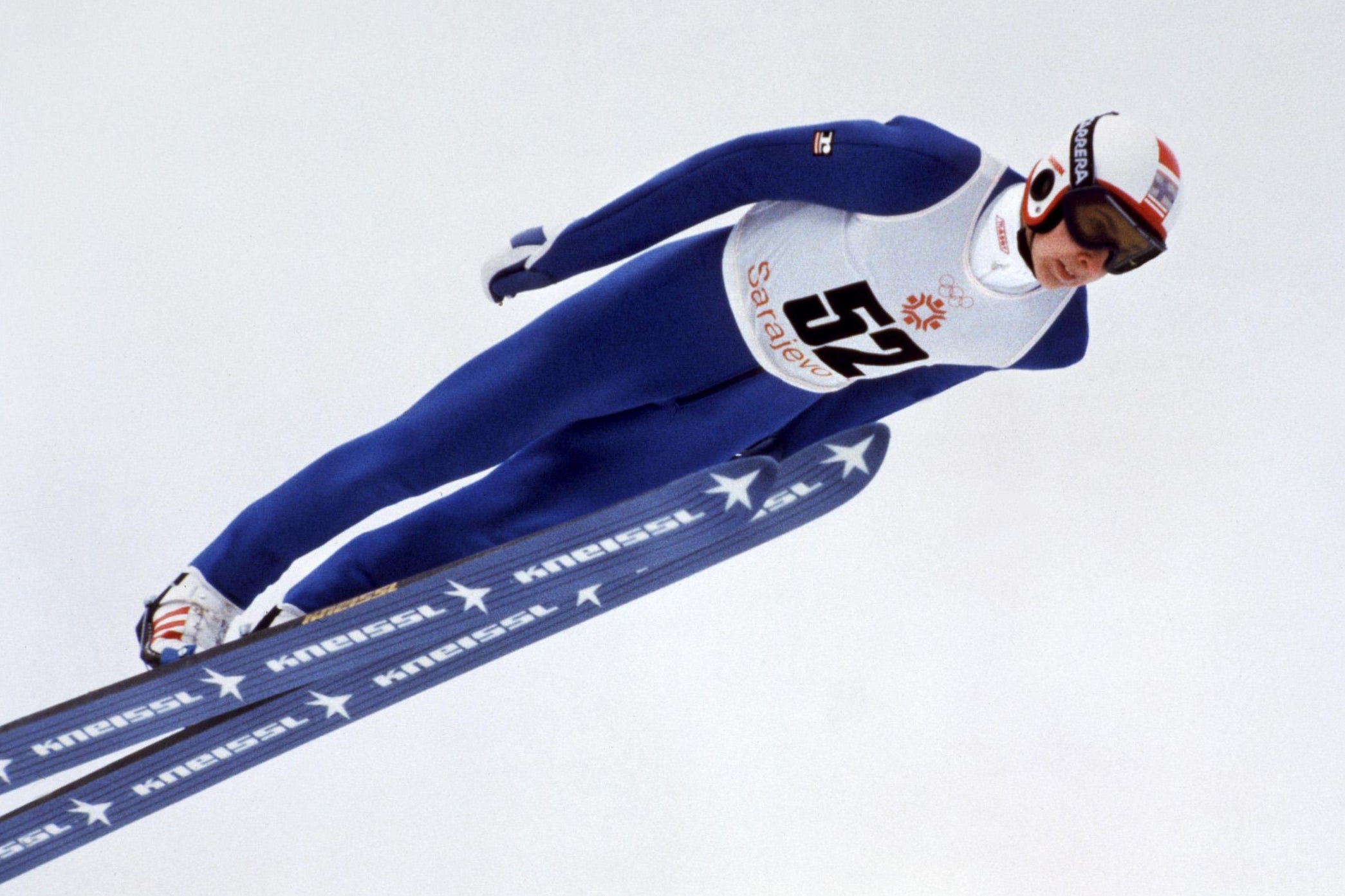Matti Nykanen: Finnish ski-jumper who won four Olympic golds but ended up as a stripper in a nightclub
Hailed as a national hero, his life turned upside down as he struggled to curb his alcohol abuse

Your support helps us to tell the story
From reproductive rights to climate change to Big Tech, The Independent is on the ground when the story is developing. Whether it's investigating the financials of Elon Musk's pro-Trump PAC or producing our latest documentary, 'The A Word', which shines a light on the American women fighting for reproductive rights, we know how important it is to parse out the facts from the messaging.
At such a critical moment in US history, we need reporters on the ground. Your donation allows us to keep sending journalists to speak to both sides of the story.
The Independent is trusted by Americans across the entire political spectrum. And unlike many other quality news outlets, we choose not to lock Americans out of our reporting and analysis with paywalls. We believe quality journalism should be available to everyone, paid for by those who can afford it.
Your support makes all the difference.For the best part of a decade, Matti Nykanen dominated ski-jumping in Finland – winning four Olympic gold medals and breaking five ski-jumping records.
But the “Flying Finn”, who has died aged 55, was known just as much for his chaotic antics off the slopes as he was for his unique ability on them. For example, he once drove a car off a bridge after falling asleep at the wheel. He cut a George Best-like figure – a national treasure both admired and pitied.
After a limp attempt at a Scandipop career in the Nineties, he was forced to work as a stripper and even operated a phone-sex hotline.
Nykanen once got engaged to a 17-year-old Estonian girl but left her after a week, also receiving a 26-month sentence in 2004 for stabbing a friend in a drunken brawl.
Born on 17 July 1963, in the Finnish city of Jyvaskyla, Nykanen first took to the slopes aged eight.
As a hyperactive child with ADHD, he was introduced to the sport by his father, Ensio, who was a milkman in the mornings and a taxi driver at night. His mother, Vieno, ran a fruit and veg stall. He also had three sisters.

By the age of 12, the once-unruly boy was training every day, heading up and down his local slope. In 1982 he won his first world championship.
At the 1984 Winter Olympic Games in Sarajevo, he earned his first gold medal by a record margin after beating competitors by 17.5 points. One year later in Planica, he achieved a first in jumping 191 metres.
In 1988 came Olympic glory in spite of reports of drunken behaviour prior to the games (he’d got kicked out of the Four Hills Tournament in Germany and Austria the year before).

In Calgary, Alberta, he became the first ski-jumper to win multiple golds at the same Games – succeeding in both the normal and large hill events as well as in the inaugural team event. Not even the sideshow of Eddie “the Eagle” Edwards could detract from Nykanen’s achievements.
Nykanen retired aged just 28 in 1991. In total, he won five Olympic medals, including four golds; four World Cup medals, 46 World Cup victories, while also making 76 World Cup podium appearances.
In 1992 he recorded his first album, Night of Surprises, shifting 25,000 copies. This was followed by 1993’s Samurai, which flopped in comparison. Two years later, he made a failed attempt to enter Finnish politics.
As his financial positioned worsened and tabloid notoriety grew, Nykanen’s sporting career drifted further into the distance.
In 1999 he got a job as a stripper in a Helsinki casino but was booed off after staggering on stage and refusing to take all his clothes off.
Nykanen’s third and final album, Maybe I Had a Drink, Maybe I Didn’t, was released in 2002, a nod to his increasingly bizarre public persona.
He had become a cartoonish character, entertaining the public with observations such as “tomorrow is always the future” and “the odds are 50:60”.
His popularity in Finland was tainted by pity, and he even sold his gold medals because he needed the cash.
Nykanen made it to rehab in 2007 and joined the ski-jumping veteran athletes’ circuit. He also expressed desires to become a celebrity chef, although it wasn’t long before his life was going back downhill.
In 2009 he received a 16-month sentence for assaulting a former partner, Mervi Tapola – the millionaire sausage heiress who was the only one of his former five wives that he remarried after divorcing.
“I don’t have a private life,” Nykanen once said. “But I do indeed have a bad image.”
He is survived by three children and his wife, Pia Talonpoika, a former actor.
Matti Nykanen, Finnish ski-jumper, born 17 July 1963, died 3 February 2019
Join our commenting forum
Join thought-provoking conversations, follow other Independent readers and see their replies
Comments